In this page, you will find: 1) Learning Objectives, 2) Modules and Themes, 3) Books for Reference, and 4) Course Staff information.
Learning Objectives
Upon completion of the course, you will be able to:
- explain historical lessons and current sustainability challenges in Japan and other parts of the world
- list international and Japanese initiatives in the field of human-nature connection
- describe Japanese experience in urban-rural land use mixture
- explain frontier knowledge in the area of environmental governance and Education for Sustainable Development (ESD)
- show theoretical concepts of sustainability science
NOTE: Please note that you cannot download the lecture videos due to the copyright issues.
Modules and Themes
*(mm:ss) indicates the time for video lectures.
Module 1: Introduction to Sustainability and Its Japanese Context
Instructors: Takashi Mino, Motoharu Onuki and Shogo Kudo
- Recognizing Sustainability Issues (9:07)
- Reviewing Sustainability Concept (11:08)
- Lessons from Water Quality Management (10:42)
- Minamata Disease - A Bitter Experience of Industrial Pollution (12:10)
- Aging Society and Sustainability 1/2 (7:19)
- Aging Society and Sustainability 2/2 (8:55)
- Japan and Sustainability (10:15)
Module 2: Linking People with Nature; An Ecosystem Approach for Human Wellbeing
Instructor: Kazuhiko Takeuchi
- Millennium Ecosystem Assessment (MA) and the Japan Satoyama Satoumi Assessment (JSSA) 1/2 (7:33)
- Millennium Ecosystem Assessment (MA) and the Japan Satoyama Satoumi Assessment (JSSA) 2/2 (5:59)
- The Convention on Biological Diversity (CBD) and the International Partnership for the Satoyama Initiative (IPSI) 1/2 (7:48)
- The Convention on Biological Diversity (CBD) and the International Partnership for the Satoyama Initiative (IPSI) 2/2 (6:38)
- Globally Important Agricultural Heritage Systems (GIAHS) and Japanese Socio-Ecological Production Landscapes and Seascapes(SEPLS) (12:52)
- Enhancing Resilience in Socio-Ecological Production Landscapes and Seascapes (SEPLS) in South-East Asia and Sub-Saharan Africa 1/2 (7:16)
- Enhancing Resilience in Socio-Ecological Production Landscapes and Seascapes (SEPLS) in South-East Asia and Sub-Saharan Africa 2/2 (9:16)
- Ecosystem-Based Disaster Risk Reduction (Eco-DRR) after the Great East Japan Earthquake and Tsunami of 2011 (11:13)
- Establishing a Sustainable and Resilient Society in Harmony with Nature for Enhancing Inclusive Human Wellbeing (11:25)
Module 3: The Value of Grey 〜Food Security and Sustainable Agriculture in Asian Cities〜
Instructors: Makoto Yokohari, Akito Murayama, Toru Terada, and Toshinori Tanaka
- Well Controlled and Layered 1/2 (7:06)
- Well Controlled and Layered 2/2 (7:44)
- How the Japanese Grey Urban Environment Was Shaped (7:37)
- Re-evaluating and Managing Grey Urban Environment (9:44)
- Hidden Order in a Mixture of Land Uses (10:27)
- Emerging Civic Activities and Productive Landscapes (11:39)
- Why Did Japan’s Urban Areas Adopt Mixed Land Use? : Case Study of Old Tokyo from a Historical Perspective (8:46)
- Culture of Wood, Culture of Stone: Controversy in Heritage Conservation (9:14)
- The Value of Grey (9:21)
Module 4: Pedagogy for a Sustainable Future
Instructors: Masahide Horita (Part A) , Yuto Kitamura (Part B), and Takashi Mino (Closing Remarks)
Part A: On Consensus and Descensus in Environmental Governance
- What Does It Mean to Commit to Sustainable Future? 1/2 (7:13)
- What Does It Mean to Commit to Sustainable Future? 2/2 (8:51)
- Decisions over Resilience (12:38)
- Meta-decision Approach to Procedural Choice 1/2 (7:24)
- Meta-decision Approach to Procedural Choice 2/2 (5:54)
Part B: Education for Sustainable Development (ESD)
- Why Is Education Important for Sustainable Development? 1/2 (10:01)
- Why Is Education Important for Sustainable Development? 2/2 (6:12)
- International Debate on ESD and the Concept of Global Citizenship (11:51)
- Regional/National Efforts to Promote ESD and Future Prospects 1/2 (8:29)
- Regional/National Efforts to Promote ESD and Future Prospects 2/2 (10:59)
Closing Remarks
Books for Reference
For those who would like to study further, the following books are recommended by the professors.
Module 1: Introduction to Sustainability and Its Japanese Context
General
- Rachel Carson. (1962). Silent Spring. Riverside Press.
- Donella H. Meadows, Dennis L. Meadows, Jørgen Randers, and William W. Behrens III. (1972). The Limits to Growth: a report for the Club of Rome's project on the predicament of mankind. New York, Universe Books.
- World Commission on Environment and Development. (1987). Our Common Future. Oxford: Oxford University Press. http://www.un-documents.net/wced-ocf.htm
- Rio Declaration on Environment and Development. (1992). The United Nations Conference on Environment and Development, Rio de Janeiro. http://www.un.org/documents/ga/conf151/aconf15126-1annex1.htm
- Report of The United Nations Conference on Environment and Development. Rio de Janeiro.(1992). Agenda 21. https://sustainabledevelopment.un.org/outcomedocuments/agenda21
- Resolution adopted by the General Assembly, The United Nations Conference on Sustainable Development (Rio+20), Rio de Janeiro. (2012). The Future We Want. http://www.un.org/disabilities/documents/rio20_outcome_document_complete.pdf
- Annual Issues from The United Nations. Millennium Development Goals Report. http://www.un.org/millenniumgoals/reports.shtml
- United Nations SDGs Homepage. Sustainable Development Goals. http://www.un.org/sustainabledevelopment/sustainable-development-goals/
Module 1 - Unit4
- Minamata City (2007). Minamata Disease –Its History and Lessons. http://www.minamata195651.jp/pdf/kyoukun_en/kyoukun_eng_all.pdf
- Harada, M. (2004). Minamata Disease. Kumamoto Nichinichi Shinbun (English edition of Harada M., (1972) Minamatabyo, Iwanamishoten).
- Timothiy S.George (2001). Minamata: Pollution and the Struggle for Democracyin Postwar Japan. Harvard University Asia Center.
- Harada, M. (1995). Minamata disease: methylmercury poisoning in Japan caused by environmental pollution. Critical Reviews on Toxicology. 25(1): 1-24.
Module 1 - Unit5
- Harper, S. (2014). Ageing Societies. London: Routledge.
- Kohlbacher, F., and Herstatt, C. (2008). The Silver Market Phenomenon. Japan Inc, 22–23. Retrieved from http://www.japaninc.com/mgz_september_2008_aging-society-in-japan
- Lowe, P., & Speakman, L. (2006). The greying countryside. In The Aging Countryside The Growing Older Population of Rural England (pp. 9–28). London: Age Concern England.
- Muramatsu, N., & Akiyama, H. (2011). Japan: Super-aging society preparing for the future. The Gerontologist, 51(4), 425–32. http://doi.org/10.1093/geront/gnr067
Module 2: Linking People with Nature; An Ecosystem Approach for Human Wellbeing
- Millennium Ecosystem Assessment (2005). Ecosystems and Human Well-Being: Synthesis. Washington, DC: Island Press, 245pp.
- Duraiappah, A., Nakamura, K., Takeuchi, K., Watanabe, M., & Nishi, M. (Eds.). (2012). Satoyama-Satoumi Ecosystems and Human Well-Being: Socio-Ecological Production Landscapes of Japan. Tokyo: United Nations University Press, 480pp.
- Takeuchi, K. (2010). Rebuilding the relationship between people and nature: the Satoyama Initiative. Ecological Research. 25, 891–897. Available at: http://dx.doi.org/10.1016/j.cosust.2015.11.001
- Ichikawa, K., Blasiak, R. & Takatsuki, A. (2012) Revitalizing socio ecological production landscapes through greening the economy. In: J.A. Puppim de Oliveira, eds. Green Economy and Good Governance for Sustainable Development. United Nations University Press, Tokyo, 117-135. Available at: http://collections.unu.edu/eserv/UNU:2521/ebrary9789280812169.pdf
- Ichikawa, K. (ed) (2012). Socio-ecological production landscapes in Asia. UNU-IAS. Available at: http://satoyama-initiative.org/wp-content/uploads/2015/04/SEPL_in_Asia_report_high_quality.pdf
- UNU-IAS and IR3S/UTIAS (2016). Socio-ecological production landscapes in Africa. UNU-IAS. Available at: http://satoyama-initiative.org/wp-content/uploads/2016/08/SEPLS-in-Africa_FINAL_lowres_web.pdf
- Yiu, E., Nagata, A. and Takeuchi, K.(2016). Comparative Study on Conservation of Agricultural Heritage Systems in China. Japan and Korea. Journal of Resources and Ecology, 7(3), 170-179. Available at: http://collections.unu.edu/eserv/UNU:5619/Agricultural_Heritage_Systems.pdf
- Jasaw, G.S., Saito, O. and Takeuchi, K. (2015). Shea (Vitellaria paradoxa) Butter Production and Resource Use by Urban and Rural Processors in Northern Ghana. Sustainability, 7, 3592-3614.
- Antwi, E.K., Otsuki, K., Saito, O., Obeng, F.K., Gyekye, K.A., Boakye-Danquah, J., Boafo, Y.A., Kusakari, Y., Yiran, G.A.B., Owusu, A.B., Asubonteng, K.O., Dzivenu, T., Avornyo, V.K., Abagale, F.K., Jasaw, G.S., Lolig, V., Ganiyu, S., Donkoh, S.A., Yeboah, R., Kranjac-Berisavljevic, G., Gyasi, E.A., Minia, Z., Ayuk, E., Matsuda, H., Ishikawa, H., Ito, O., and Takeuchi, K. (2014). Developing a Community-Based Resilience Assessment Model with Reference to Northern Ghana. Journal of Integrated Disaster Risk Management, 4(1), 73-92.
- Otsuki, K., Jasaw, G.S., and Lolig, V. (2014). Framing Community Resilience through Mobility and Gender. Journal of Disaster Research, 9(4), 554-562.
- Takeuchi, K., Elmqvist, T., Hatakeyama, M., Kauffman, J., Turner, N., Zhou, D.(2014). Using sustainability science to analyse social–ecological restoration in NE Japan after the great earthquake and tsunami of 2011. Sustainability Science 9: 513-526.
- Takeuchi, K., Nakayama, N., Teshima, H., Takemoto, K., and Turner, N. (2016). Ecosystem Based Approaches toward a Resilient Society in Harmony with Nature. In: F. Renaud et al. (eds.), Ecosystem-Based Disaster Reduction and Adaptation in Practice, Advances in Natural and Technological Hazards Research 42. Springer International Publishing, Switzerland, 315-333.
- Ministry of the Environment, Government of Japan (2012). The National Biodiversity Strategy of Japan- Roadmap towards the Establishment of an Enriching Society in Harmony with Nature. 294pp. Available at: http://www.env.go.jp/press/files/en/528.pdf
- Takeuchi, K., Ichikawa, K. and Elmqvist, T.(2016). Satoyama landscape as social-ecological system: historical changes and future perspective. Current Opinion in Environmental Sustainability: 19, 30-39.
Module 3: The Value of Grey 〜Food Security and Sustainable Agriculture in Asian Cities〜
Unit 1 and Unit 8 by Prof. Makoto Yokohari
- Yokohari, M., Takeuchi, K., Watanabe, T., & Yokota, S. (2000). Beyond greenbelts and zoning: a new planning concept for the environment of Asian mega-cities. Landscape and Urban Planning, 47(3), pp. 159-171.
- Yokohari, M., Murakami, A., Hara, Y., & Tsuchiya, K. (Eds.). (2017). Sustainable landscape planning in selected urban regions. p. 265, Springer.
- Yokohari, M., Amati, M., Bolthouse, J., & Kurita, H. (2010). Restoring agricultural landscapes in shrinking cities: re-inventing traditional concepts in Japanese planning. Primdahl, J., & Swaffield, S. (Eds.). Globalisation and agricultural landscapes: change patterns and policy trends in developed countries (pp. 51-59). Cambridge University Press.
Unit 2 and Unit 3 by Prof. Akito Murayama
- Murayama, A. (2016). Land Use Planning for Depopulating and Aging Society in Japan. Yoshiki Yamagata and Hiroshi Maruyama eds.: Urban Resilience - A Transformative Approach (pp. 79-92), Springer.
- Okata, J., Murayama, A. (2011). Tokyo's Urban Growth, Urban Form and Sustainability. Andre Sorensen and Junichiro Okata eds.: Megacities: Urban Form, Governance, and Sustainability (pp. 15-41), Springer.
Unit 4 and Unit 5 by Prof. Toru Terada
- Takeuchi, K., Brown, R. D., Washitani, I., Tsunekawa, A., & Yokohari, M. (Eds.). (2012). Satoyama: the traditional rural landscape of Japan. Springer Science & Business Media.
- Terada, T. (2017). Urban Periphery Landscape: Dichotomization of Urban and Rural Dimensions. In Labor Forces and Landscape Management (pp. 73-82). Springer Singapore.
- Terada, T., Yokohari, M., & Amemiya, M. (2016). Urban farming in Tokyo: towards an urban-rural hybrid city. Lewis T Chandola T (eds) Green Asia: ecocultures, sustainable lifestyles and ethical consumption (P. 192). Routledge, London.
- Terada, T., Yokohari, M., Bolthouse, J., & Tanaka, N. (2010). Refueling Satoyama woodland restoration in Japan: enhancing restoration practice and experiences through woodfuel utilization. Nature and Culture, 5(3), 251-276.
Unit 6 and Unit 7 by Prof. Toshinori Tanaka
- Sorensen, A. (2005). The making of urban Japan: cities and planning from Edo to the twenty first century. p. 386, Routledge.
- Winter, T. (2014). Beyond Eurocentrism? Heritage conservation and the politics of difference. International Journal of Heritage Studies 20(2), pp. 123-137.
- Stovel, H. (2008). Origins and Influence of the Nara Document on Authenticity. APT Bulletin 39(2/3), pp. 9-17.
Module 4: Pedagogy for a Sustainable Future
Part A by Prof. Masahide Horita
- Rescher, N. (1995). Public Concerns: Philosophical Studies of Social Issues. Rowman & Littlefield.
- Rescher, N. (2003). Sensible Decisions: Issues of Rational Decision in Personal Choice and Public Policy. Rowman & Littlefield.
- Forester, J F. (1989). Planning in the Face of Power. University of California Press.
- Mueller, D C. (2003). Public Choice III. Cambridge University Press.
- Jasanoff, S. (2012). Science and Reason. Routledge.
Part B by Prof. Yuto Kitamura
- Tawil, S. (2013). EDUCATION FOR 'GLOBAL CITIZENSHIP': A FRAMEWORK FOR DISCUSSION. Education Research and Foresight (ERF) Working Papers, 7, pp. 1-8. Available at: http://unesdoc.unesco.org/images/0022/002237/223784e.pdf
- Kanie, N., Abe, N., Iguchi, M., Yang, J., Kabiri, N., Kitamura, Y., Mangagi, S., Miyazawa, I., Olsen, S., Tasaki, T., Yamamoto, T., Yoshida, T., & Hayakawa, Y. (2014). Integration and Diffusion in Sustainable Development Goals: Learning from the Past, Looking into the Future. Sustainability, 6(4), pp. 1761-1775, DOI:10.3390/su6041761. Available at http://www.mdpi.com/2071-1050/6/4/1761/htm
- The United Nations Educational, Scientific and Cultural Organization. (2017). Education for Susteainable Development Goals: Learning Objectives. Available at: https://millenniumedu.files.wordpress.com/2017/03/247444e.pdf
Course Staff
Takashi Mino
Professor, Graduate School of Frontier Sciences
The University of Tokyo

Takashi Mino is Dean and Professor at Graduate School of Frontier Sciences and serving as Coordinator of Graduate Program in Sustainability Science - Global Leadership Initiative (GPSS-GLI). He received his Bachelor's, Master's and Ph.D Degrees in Engineering from The University of Tokyo in 1978, 1980 and 1983, respectively.
Kazuhiko Takeuchi
Professor, Integrated Research System for Sustainability Science (IR3S)
The University of Tokyo
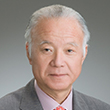
Kazuhiko Takeuchi is Director and Professor, Integrated Research System for Sustainability Science (IR3S), The University of Tokyo Institutes for Advanced Study (UTIAS), and Senior Visiting Professor, United Nations University (UNU). He received his M.Agr., and PhD. in Landscape Ecology and Planning from the University of Tokyo in 1976, 1980, respectively.
Makoto Yokohari
Professor, the School of Engineering
The University of Tokyo
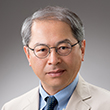
Makoto Yokohari is Professor of the School of Engineering, The University of Tokyo. He received his Bachelor Degree (1984), Master Degree (1986) and PhD (2002) from the University of Tokyo.
Masahide Horita
Professor, Graduate School of Frontier Sciences
The University of Tokyo
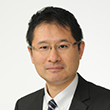
Masahide Horita is currently a Professor at the Department of International Studies, Graduate School of Frontier Sciences, University of Tokyo. He received his PhD from the London School of Economics in 1999 and subsequently worked at Durham Business School as Senior Research Associate until he moved to the University of Tokyo in October, 2000.
Yuto Kitamura
Associate Professor, Graduate School of Education
The University of Tokyo
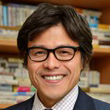
Yuto Kitamura is Associate Professor of Education at Graduate School of Education and Adjunct Associate Professor at Graduate Program in Sustainability Science at the University of Tokyo. He received his B.A in Education from Keio University (Japan) in 1996 and M.A. and Ph.D. in Education from University of California, Los Angeles (UCLA) in 1997 and 2000, respectively.
Motoharu Onuki
Associate Professor, Graduate School of Frontier Sciences
The University of Tokyo
Motoharu Onuki is an Associate Professor at Graduate Program in Sustainability Science-Global Leadership Initiative, Graduate School of Frontier Sciences, The University of Tokyo. He received his Bachelor's, Master's and Ph.D Degrees in Engineering from The University of Tokyo in 1997, 1999 and 2002, respectively.
Shogo Kudo
Project Researcher, Graduate School of Frontier Sciences
The University of Tokyo

Shogo Kudo is Project Researcher at Graduate Program in Sustainability Science-Global Leadership Initiative, Graduate School of Frontier Sciences, The University of Tokyo. He completed his MAs and Ph.D. in Sustainability Science in GPSS-GLI from The University of Tokyo in 2012 and 2015 respectively.
Akito Murayama
Professor, School of Engineering
The University of Tokyo
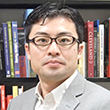
Akito Murayama is Associate Professor of School of Engineering, The University of Tokyo. He received his Bachelor Degree (1999), Master Degree (2001) and Ph.D. (2004) from the University of Tokyo.
Toru Terada
Lecturer, Graduate School of Frontier Sciences
The University of Tokyo
Toru Terada is lecturer of the Graduate School of Frontier Sciences, the University of Tokyo. He received his Ph.D. in Environmental Studies in 2011 from the University of Tokyo.
Toshinori Tanaka
Project Assistant Professor, Graduate School of Frontier Sciences
The University of Tokyo
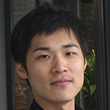
Toshinori Tanaka is Project Assistant Professor of the Graduate School of Frontier Sciences, The University of Tokyo. He received his Bachelor Degree in history (2006) from Osaka University, and his Master (2008) and PhD in environmental policy (2011) from Kyoto University.
Tyunina Olga
Teaching Assisstant

Olga is a PhD student at the the University of Tokyo majoring in Sustainability Science. She is coming from Regional Studies background and received her Master Degree in Environmental Studies. Her research is trying to find strategies to increase a share of alternative agriculture producers. In this course, she is responsible for all the modules.
Dominique Chiu
Teaching Assisstant

Dominique is currently studying for her master's degree in sustainability science at the University of Tokyo's Graduate School of Frontier Sciences. She expects to finish her studies in September 2017. In this course, she is responsible for Module 1.
Evonne Yiu
Teaching Assisstant

Evonne is Research Associate of the United Nations University Institute for the Advanced Studies of Sustainability while pursuing her PhD in Global Fisheries Science at the University of Tokyo. She received her Masters in Public Policy at the University of Tokyo in 2012 and her Bachelor in Arts (First Class Honours) at National University of Singapore in 2003. In this course, she is responsible for Module 2.
Sioen Giles Bruno
Teaching Assisstant

Giles is a PhD student at the Graduate Program for Sustainability Science - Global Leadership Initiative, the University of Tokyo. He received his masters in Urban planning and design from KU Leuven (2013) and his bachelors in landscape architecture from University College Ghent (2010). His research quantifies food self-sufficiency in megacities prone to natural disasters in order to achieve sustainable and resilient urban communities. In this course, he is responsible for Module 3.
Wu Weifeng
Teaching Assisstant
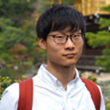
Wu Weifeng comes from China. He is a Master student at the Graduate School of Frontier Sciences at the University of Tokyo. In this course, he is working with Prof. Horita for Module 4.
Erika Atarashi
Teaching Assisstant

Erika Atarashi is master course student of Gradurate School of Education at The University of Tokyo. She received her Bachelor of Science from Hokkaido University in 2009. In this course, she is working with Prof. Kiramura for Module 4.